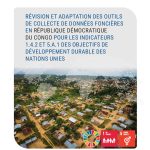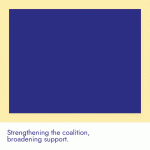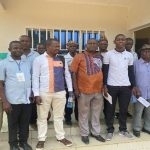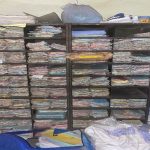Land and Natural Resources Tenure Security Learning Initiative for East and Southern Africa (TSLI-ESA) – Phase 1
UN-Habitat, through the Global Land Tool Network (GLTN), entered into a partnership with IFAD to implement a project called the ‘Land and Natural Resources Learning Initiative for Eastern and Southern Africa (TSLI-ESA). The Project aims to improve knowledge management strategies and approaches towards a pro-poor and gender-sensitive land and natural resource tenure rights system in selected Eastern and Southern African countries. The goal of the initiative is to contribute to the development and integration of pro-poor tools and approaches for securing land and natural resource rights into development programmes.
Thematic focus:
Based on a preliminary review and discussions with various projects and programmes, the TSLI-ESA project will focus primarily, but not exclusively, on the following five themes:
- Using technically advanced geographic information technologies, such as aerial photography, remote sensing technology and Geographic Information Systems (GIS) for mapping land and natural resource rights, use and management.
- Recognizing and documenting small-scale farmers land and water rights in irrigation schemes.
- Recognizing and documenting group rights, focusing on range/grazing lands, forests and artisanal fishing communities.
- Strengthening women’s access to land.
- Documenting best practices in securing land and natural resource rights through business partnerships between small-scale farmers and outside investors.
Knowledge Management Materials
Output 1: Innovative Approaches for Strengthening Security of Land and Natural Resource Tenure of the Poor Documented and Shared
| A. Regional Learning Workshop on Land and Natural Resources Tenure Security | The Regional Learning Workshop held in Nairobi marked the start of the TSLI-ESA project Knowledge Management Initiative. The workshop aimed at deepening the understanding of land and natural resources tenure security issues and to identify opportunities to strengthen land tenure security and land access of the rural poor and marginalized groups in sub-Saharan Africa. [Workshop Report] |
| B. Country Reports and Country Factsheets | The TSLI-ESA project has produced a series of five Country Reports providing country-specific reviews of how recent or on-going IFAD-supported projects and programmes are dealing with land and natural resource issues. |
| i) Country Report – Kenya | This report captures the lessons learned during a joint visit to Kenya by IFAD and GLTN, organised as part of the TSLI-ESA. Its objective is to develop a better understanding of the tenure issues faced by IFAD-supported projects in Kenya and to examine some of the tools and strategies adopted to deal with these issues. [Kenya Country Report] |
| ii) Country Report – Uganda | This report captures the lessons learned from a number of visits to Uganda by IFAD and GLTN staff, organised as part of the TSLI-ESA. The country reports form part of the overall strategy of the TSLI-ESA, which is to identify common issues and to enhance lesson sharing and knowledge management on land-related tools amongst the various projects and country partners. [Uganda Country Report] |
| iii) Country Report – Rwanda | This report captures the lessons learned from IFAD – supported projects in Rwanda. It is produced as part of the TSLI-ESA after different country visits, the objective of which is to develop a better understanding of the tenure issues faced in the country and examine some of the tools and strategies adopted to deal with them. [Rwanda Country Report] |
| iv) Country Report – Swaziland | The report captures lessons learned during a joint visit to Swaziland by IFAD and GLTN team, organised as part of the TSLI-ESA. It is one of a number of reports on country visits, the objective of which is to develop a better understanding of the tenure issues faced by IFAD-supported projects in these countries and to examine some of the tools and strategies adopted to deal with them. [Swaziland Country Report] |
| v) Country Report – Mozambique | This report captures the lessons learned during a joint visit to Mozambique by IFAD and GLTN team, organised as part of the TSLI-ESA. It is one of a number of reports on country visits, the objective of which is to develop a better understanding of the tenure issues faced by IFAD-supported projects in these countries and to examine some of the tools and strategies adopted to deal with them. [Mozambique Country Report] |
| C. Awareness Building and Advocacy | |
| i) Contributions to the World Bank Conference on Land and Poverty, Washington, April 2013 | The TSLI-ESA project sponsored the production of three separate papers presented at the annual World Bank Conference on Land and Poverty in April 2013. These covered three of the five thematic areas of the TSLI-ESA project.Paper 1: Securing Livelihoods, Land and Natural Resource Rights through Inclusive Business Models: Lessons from Uganda and Mali [Masaba et al., 2012]Paper 2: Securing Smallholder Farmers’ Land and Water Rights and Promoting Equitable Land Access in Irrigation and Watershed Management in Malawi, Rwanda and Swaziland [Gunda et al., 2012]
Paper 3: Legal Empowerment to Secure Women’s Land Rights in Burundi [Musirimu et.al., 2012] |
| ii) Contributions to the World Bank Conference on Land and Poverty, Washington, March 2015 | Paper 1: Pro-poor land records, palm oil, and prosperity: any proof from Bugala island, Uganda? [Bennett et al., 2015]
Paper 2: Scalable Approaches to Improving Tenure Security and their Impacts in Irrigation Schemes: Lessons from Malawi and Kenya [Gunda et al., 2015] Paper 3: Scalable approaches to improving tenure security for smallholder farmers in Uganda [Kabuleta et.al., 2015] |
| iii) Fact Sheets on the five (5) thematic areas within the TSLI-ESA project | These Fact Sheets identify the relevant IFAD supported programmes / projects in various countries in the region and arrange them in accordance with their engagement in the five thematic areas.
Mapping: Mapping Land and Natural Resource Rights, Use and Management Land and Water Rights: Securing Smallholder Farmers’ Land and Water Rights in Irrigation Schemes in Malawi, Rwanda and Swaziland Group Rights: Recognizing and Documenting Group Rights to Land and other Natural Resources Inclusive Business: Securing Land and Natural Resource Rights through Business Partnerships between Small-scale farmers and investors Women’s Access:
Land and Natural Resource Tenure Security for East and Southern Africa [Fact Sheet] |
| iv) Training on gender and grassroots participation in good land governance | In February 2013, TSLI-ESA project sponsored the participation of three representatives from IFAD supported projects and programmes to two parallel training events, one in English and the other in French, on “Good land governance through grassroots participation and gender empowerment” organized by UN-Habitat/GLTN and LPI. [Gender Training Package] |
| v) Workshop on tools for strengthening women’s land rights | In May 2013, GLTN, IFAD and ILC jointly organized a Workshop on “Tools, Guidelines and Approaches for Strengthening Women’s Access to Land”. The workshop, held in Nairobi, was to present and discuss existing tools and approaches and to analyse and identify existing gaps for up-scaling at country level. [Women’s Land Rights – Workshop Report] |
Output 2: Recommendations and Guidelines Produced and Disseminated for Integrating Approaches for Securing Land and Natural Resource Rights
| A. Learning Notes | The Learning Notes provide a review of current approaches and tools for securing land and natural resource rights of poor women and men in the five thematic areas.
Mapping: Using Approaches and technologies for Mapping Land and Natural Resource Use and Rights [Mapping Learning Note] Land and Water Rights: Recognising and Documenting Small-scale Farmers’ Land and Water Rights in Irrigation Schemes [Land & Water Rights Learning Note] Group Rights: Recognizing and Documenting Group Rights: Concepts, Issues and Current Best Practices [Group Rights Learning Note] Inclusive Business: Securing Land and Natural Resource Rights Through Business Partnerships between Small-scale Farmers and Outside Investors [IBM Learning Note] Women’s Access: Strengthening Women’s Access to Land [Women Access Learning Note] |
| B. Initiative to establish the communities of practice (CoP) | As a first step towards setting up Communities of Practice (CoPs) on TSLI-ESA project’s thematic areas, five thematic mailing lists were set up following the Regional Learning Workshop held in Nairobi in May 2012. |
| C. Roster of land and natural resource tenure consultants and organizations | In preparation for Phase 2 of TSLI-ESA project, a call for expression of interest for land and natural resource tenure experts was initiated. |
Output 3: Opportunities and Modalities for Scaling up Lesson Learning and for Piloting new Approaches Identified
| Land and Natural Resources Tenure Security Learning Initiative for East and Southern Africa (TSLI-ESA) – Phase 1: Achievements, Lessons Learned and Way Forward | Based on the other outputs and initial learning and experience from Phase 1 of the TSLI-ESA project, GLTN in collaboration with IFAD has acquired a grant for TSLI-ESA Phase 2 Implementation. The final report for Phase 1 gives an overview of the Achievements, Lessons Learned and Way Forward for TSLI-ESA Project [TSLI-ESA Phase 1 Report] |
| Land and Natural Resources Tenure Security Learning Initiative for East and Southern Africa (TSLI-ESA) – Phase 2 Year 1: Achievements, Lessons Learned and Way Forward | [TSLI-ESA Brief] |







